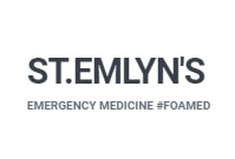
- Striving for excellence
- Innovative thinking
- Clinical pearls
Excellence
Within this nebulous term of ‘excellence’ though, there was repeated reference to the components that were the more tangible components in day-to-day practice. The aforementioned morbidity and mortality (M&M) meetings, the contrasting discussion of ‘excellent practice’, the leg-work of audit and governance structures, and of course the training, were all highlighted as the very achievable components of a system that is working towards excellence. For me, this reiterated the fact that much of this talk of ‘striving toward excellence’ is far more than just aspirational thinking. I think that these are all components of our normal clinical practice that we may partake in less fully, or see as lower down the hierarchy of importance when we are at the clinical coalface, but which may be the building blocks of a better system. Now I can see that the criticism may be that it is all very nice talking about these ideas over coffee at a nice conference, or even delivering them in a system with a predictable degree of down-time, but how can I fit in a weekly M&M session when system is as stretched as it is currently? Well I think that the next clinical theme gave me hope.
Innovative Thinking
In a slightly different vein, but just as inspiring, was the fascinating talk from Kat Evans (@Kat_Evans). She delivered an eye-opening account of the challenges faced by her and her team working at her hospital in South Africa. What was perhaps most inspiring was the adaptations that they had innovated to meet these challenges. Faced with a high number of thoracic stabbing wounds and limited resources, she described their triage system for coping with such large numbers: top off at the door, ultrasound/echo, the chest drain room for those with pleural injury, thoracotomy in the ED for those that needed a hole in the heart fixing. And the speed of the turn-around was just as amazing. No languishing in hospital beds, but instead kept mobile and active (including an exercise bike in the ‘chest drain lounge’). Even the enhanced recovery programme physios aren’t quite achieving this level yet. Now I know that these are all (mostly) fit young men, but along with some of the perioperative medicine stuff at the moment (the enhanced recovery programme being an example of how ‘normal’ care has progressed), it does make you wonder which aspects of our own practice are actually superfluous, and even unconsciously harmful. Innovative responses to challenges like this suggest that different models might not necessarily be what they first appear.
In another contrasting direction, Rick Body (@richardbody) gave a fascinating talk on what may be in store for the future of diagnostics. He covered questions that continue to challenge me - how can we use what information we have to make the right decisions? Whilst not completely handing medical care over to AI just yet, he described how we may soon be able to use big data, user friendly apps and point of care (POC) testing to navigate the branching paths of diagnostics. There is even a fancy new term; theranostics, precision medicine where the diagnostic test can guide treatment. Whilst the old challenge of chest pain was the central narrative of his talk, there was even a reference to POC genetic testing in the ED! If ever there was a talk to get you more excited about involvement in research, I think this one would take some beating. Some of the themes from his talk are covered a bit more one his blog post from earlier this year (here).
Clinical Pearls
Thanks for reading.
Tom Heaton
Further Reading
SMACC - Social Media and Critical Care - https://www.smacc.net.au/
Bad EM blog - Brave African Discussion in Emergency Medicine - https://badem.co.za/
R.E.B.E.L. EM - http://rebelem.com/
ED Educate - a nice summary of the day - https://www.ededucate.co.uk/blog/st-emlyn-s-live
 RSS Feed
RSS Feed
